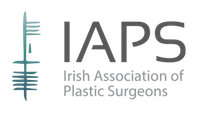A statement on breast implant safety
Breast implants are amongst the most used and most highly studied implantable medical devices in the world. Important lessons were learned from historical incidents which have resulted in improvements in the international regulatory system and the widespread introduction of national breast implant registries.
The establishment of effective national breast device registries combined with international collaboration has the ability to significantly improve health outcomes for patients with implantable breast devices globally.
The published literature indicates that breast implants are thought to be safe in general but can have rare, serious side effects. These side effects have been studied extensively, especially in the field of auto-immune diseases such as Sjogren’s syndrome and rheumatoid arthritis and a rare form of lymphatic cancer, BIA-ALCL.
Plastic and Breast surgeons around the world speak every day with women before and after breast implant surgery for breast reconstruction and augmentation and endeavour to provide patients with well balanced, up to date knowledge to ensure women deciding to undergo this surgery feel confident in their choice.
The important question is, ‘do women with breast implants develop more diseases than women without breast implants?’ The medical literature, to date indicates that the commonest problems associated with breast implants are capsular contracture, implant displacement, and implant rupture.
There is also a rare form of lymphatic cancer, Breast Implant Associated Anaplastic Large Cell Lymphoma (BIA-ALCL). This disease usually presents with rapid enlargement of the breast due to fluid around the implant. It is diagnosed by studying the cells in that fluid and, generally, is eminently treatable by surgery and, where indicated, oncology.
Auto-immune diseases (such Sjögren’s syndrome, chronic fatigue and rheumatoid arthritis) have also been investigated in relation to breast implants. These symptoms have been called ASIA syndrome or breast implant illness (BII). There is no conclusive evidence of a causal link and more research is needed to assess any potential link between Auto Immune/Inflammatory Syndrome Induced by Adjuvants (ASIA syndrome) and breast implants; one of several names for this potential Breast Implant illness.
More funding is needed to support research into BIA-ALCL and ASIA syndrome. Data collection through effective national breast device registries is an essential part of this research. The Australian Breast device Registry (ABDR) is a model for such national registries.
These registries collect anonymized information about patients with breast implants. The facilitation of international comparison of outcomes from these registries, within the international legal framework of protecting privacy, is enabled through the International Collaboration of Breast Registry Activities (ICOBRA), a collaborative network of national plastic surgery societies, breast surgery societies, regulators and researchers.
Plastic and Breast Surgeons and their associations worldwide will continue to support governments and notified bodies in their regulatory and investigatory work in this field.
Plastic and Breast Surgeons worldwide therefore conclude:
- Breast implants are safe, but have very rare, sometimes serious, side effects.
- Women presenting with these side effects should be taken seriously, supported and examined.
- BIA-ALCL is rare and, usually, eminently treatable
- Further research is necessary about the role of breast implants and auto-immune diseases and other symptoms (ASIA/BII)
We therefore advise our patients:
- When you have questions, particularly if you are concerned about symptoms that may be related to your implants, consult your Surgeon.
- Make sure you are completely informed from reliable sources prior to undergoing breast implant surgery, for any indication.
- To register your implant and surgery on the national database.
